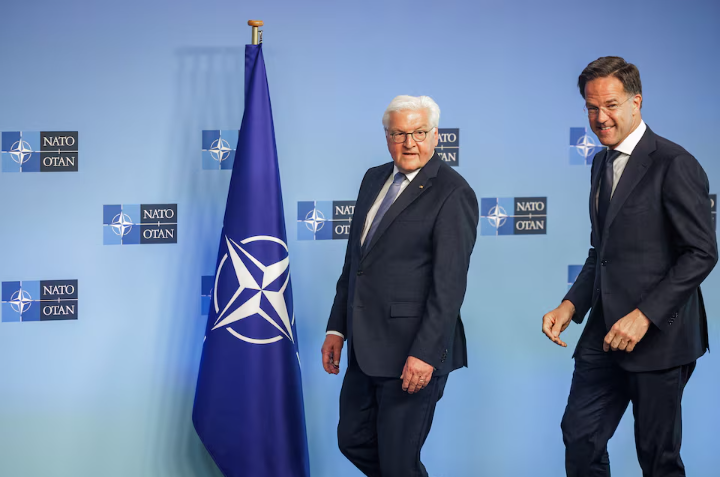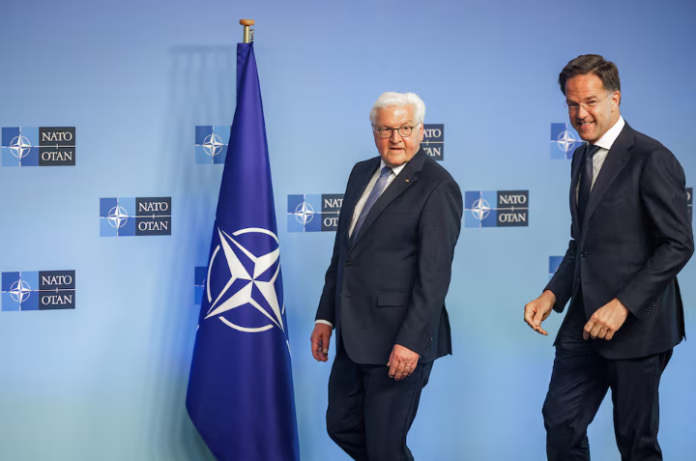As global tensions rise and NATO navigates a new era of uncertainty, Germany has pledged to play a stronger role in Europe’s defence strategy. At a historic ceremony marking the 70th anniversary of Germany joining NATO, President Frank-Walter Steinmeier reassured allies that Berlin is ready to lead from the front.
Speaking at NATO’s headquarters in Brussels, Steinmeier acknowledged the seismic geopolitical shifts caused by Russia’s ongoing war in Ukraine and the mounting pressure from the United States on its European partners. He emphasized that Germany has heard the call to step up—and is ready.
“You can count on us,” Steinmeier declared. “Germany will become the backbone of conventional defence in Europe—militarily and in terms of infrastructure.”
This bold declaration comes as Germany gears up for a historic increase in defence and infrastructure spending. The incoming chancellor, Friedrich Merz, is set to implement a massive €500 billion ($569 billion) special fund aimed at modernizing Germany’s military and infrastructure. Significantly, the country is preparing to exclude defence investments from the domestic borrowing limits that have traditionally kept military budgets lean.
Germany’s new posture marks a dramatic departure from its post-war identity, which was built on fiscal conservatism and a preference for multilateral diplomacy through institutions like the United Nations, NATO, and the European Union. But, as Steinmeier noted, times have changed.
“Putin has brought war back to this continent,” he said. “A weak and underarmed Germany is now more dangerous to Europe than a well-equipped one.”

Germany’s pivot is driven not only by the conflict in Ukraine but also by a growing realization that Europe may not always be able to rely on the United States. Former President Donald Trump’s sharp criticisms of NATO allies sparked concerns about long-term U.S. commitment, leading to calls for greater self-reliance within Europe.
Germany joined NATO in 1955 during the Cold War, and its commitment was further cemented when East Germany joined following reunification in 1990. Now, seventy years later, Berlin is signaling that it’s ready to carry more weight in defending the continent.
With this renewed commitment, Germany aims to transform from a cautious partner into a central pillar of European defence—one that NATO can rely on in a rapidly changing world.



